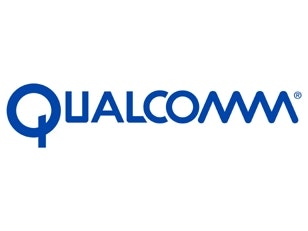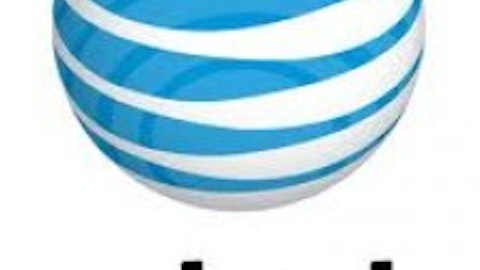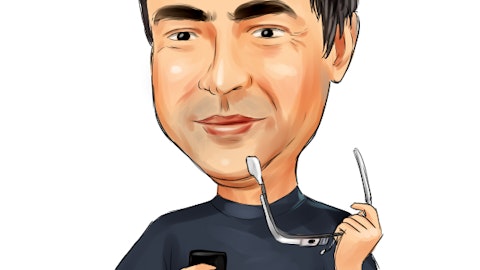“During the Gold Rush, most would-be miners lost money, but people who sold them picks, shovels, tents and blue-jeans (Levi Strauss) made a nice profit.”
Peter Lynch
The mobile revolution is nothing like the gold rush, companies like Apple Inc. (NASDAQ:AAPL) and Samsung have already made tons of money from it, while other like Google Inc (NASDAQ:GOOG) stand to benefit enormously from the mobile boom over the next years by expanding its dominance in search and online advertising into smartphones and tablets.
But it still makes sense to look at the industry suppliers, especially at a company like QUALCOMM, Inc. (NASDAQ:QCOM) which is in a rock solid competitive position to profit from the mobile revolution for years to come, while offering at the same time a historically attractive valuation.
Device manufacturers
When looking at smartphones and tablets manufacturers, things have become a little tricky lately. Apple Inc. (NASDAQ:AAPL) has traditionally been considered the undisputed profit leader, making new sales records year after year, and achieving sky high profit margins above 35% at the operating level.
But investors have been losing their faith in the Cupertino giant lately. The company guidance in its last earnings release signaled steeply falling profit margins for the December quarter. Apple Inc. (NASDAQ:AAPL) has completely renewed its lines of products lately, and this usually means thinner margins. Besides, the iPad Mini is cannibalizing the bigger iPad versions, and most analysts believe this will mean lower profit margins in the future.
Like if that weren’t enough bad news, there have been several reports signaling component orders cuts for both the iPhone and the iPad, and this has created even more uncertainty regarding Apple and its middle term prospects.
Let me be absolutely clear about this: I believe Apple is an absolute bargain at current price levels. Component order cuts can be based on all kinds of reasons, like a shortening product cycle or changing suppliers, so it’s far too soon to claim that demand is weakening for Apple products. Besides, even assuming that profit margins will decline in the future, Apple is trading at a dirt cheap valuation with a P/E ratio below 11.5, so smaller margins are already priced in.
However, Apple is the business of selling premium products at premium prices, so it will hardly dominate the industry in terms of global market share.
Apple Inc. (NASDAQ:AAPL) products are too expensive for consumers in emerging markets, where the carrier subsidy model is not as popular as in the US. In those high growth geographies, Samsung and other low cost producers have a big advantage over Apple when it comes to pricing.
But Samsung is far from a safe bet either; the company is much dependent on Google’s Android operating system. Now that the search engine is launching its own smartphones and tablets, and the products are receiving some notably positive reviews, Samsung could be up for a nasty surprise if Android users start witching towards Google’s products.
As for Google, I wouldn’t call it a bet on the mobile boom. Android is extremely popular, but the company allows hardware manufacturers to use it for no cost at all. Android is Google’s way to make sure that it will be able to capture the growing traffic and online advertising that comes with mobile, but the company still makes much more money in desktop than in mobile. Google’s hardware initiatives look interesting, but still too young to be considered a safe play on mobile.
Other players like Nokia Corporation (ADR) (NYSE:NOK) and Research In Motion Limited (USA)(NASDAQ:RIMM) are trying to recover some of the ground they have lost over the last years, and they offer plenty of upside potential if they succeed in they efforts. But they are way behind the big players, both in terms of market share and ecosystem depth, so they carry a lot of risk if things don’t turn out as expected.
A rock solid supplier
Qualcomm, on the other hand, looks like a more transparent alternative in the mobile space. The company is a key provider of digital wireless telecommunications products and services based on its code division multiple access (CDMA) technology among other products and services. Qualcomm is strongly integrated into Apple’s iPhone and iPad products as well as many Android-based devices, including the best-selling products from Samsung, so it looks positioned for growth under different competitive scenarios.
The company is above its competitors when it comes the technological quality of its products, as demand for smartphones and tablets keeps growing; Qualcomm is in a privileged position to profit from the mobile boom.
In fact, the company has done exceedingly well in terms of both sales and earnings over the last years, and there is no reason to believe that this will come to an end anytime soon.
And valuation looks attractive too. At a P/E ratio below 20, Qualcomm is cheaper than it has been at any time over the last 10 years. This is probably because investors have been selling Qualcomm due to fears over a possible slowdown in iPhone demand. They seem to be forgetting, however, that Qualcomm is still a big supplier to Apple’s biggest competitor: Samsung.
No matter which device manufacturer wins the mobile race, as long as Qualcomm remains a leading supplier to the biggest players in the industry, the company will continue rewarding shareholders with solid growth in sales and earnings over the next years.
Bottom line
“Gold diggers” in the mobile computing industry are looking like a complicated bet right now. But Qualcomm, the leading “shovel manufacturer,” is a much safer bet. Both in terms of growth opportunities and current valuation, the company has a lot to offer to investors looking for smart ways to capitalize on the mobile revolution.
The article An Unquestionable Winner From the Mobile Revolution originally appeared on Fool.com.
Copyright © 1995 – 2013 The Motley Fool, LLC. All rights reserved. The Motley Fool has a disclosure policy.






